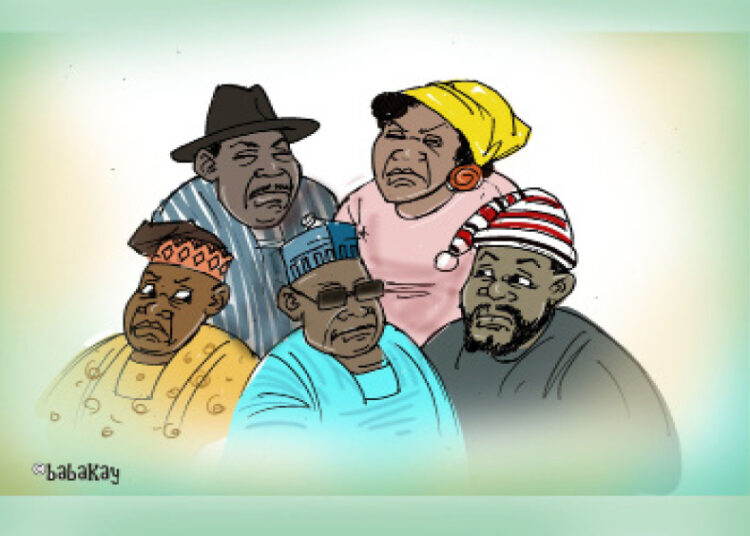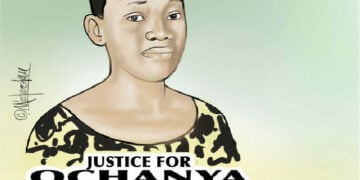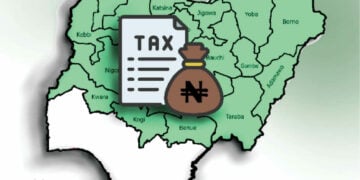Nigeria is an ethnically diverse nation with over 250 ethnic groups, each with its own cultural, linguistic, and historical characteristics, that have collectively shaped the nation. The popular phrase “unity in diversity”, alluding to the possibility that diversity does not necessarily need to result in fragmentation, is often touted by Nigerians, even though this assertion is far from reality. Ethnic conflicts, which inadvertently take on various forms, such as religious, have long existed within the larger and more predominant groups and can now be seen within smaller groups too. But how did Nigeria become divided along ethnic lines, and how can we collectively move forward united, in the true sense of the word?
1914 Amalgamation, a Turning Point In Nigeria’s History
The amalgamation by the British colonial authorities merged separate territories and thus various ethnicities into the region we now know as Nigeria. This event took place on January 1, 1914, and so marked a significant turning point in the history of Nigeria, as it laid the foundation for the modern Nigerian state. However, before the amalgamation, this region, like most African sub-regions, was a collection of different ethnic groups, kingdoms, and societies, each with distinct cultures, languages, and political structures. Many of these territories were administered separately by the British colonial government. When it became expedient, the British authorities sought to eventually amalgamate the regions to gain administrative efficiency and economic Consolidation.
The administrative efficiency of the British administration has been the basis of the division and broad categorisation of ethnicities in Nigeria. For instance, the larger part of the nation to the north was broadly categorised as Hausa-Fulani, which is a combination of two ethnic groups, the Hausa and the Fulani, who are mainly found in the northern regions of Nigeria. It was much harder to broadly categorise the southern part of the nation because of stark differences in cultural and historical characteristics. So, the southern part was broadly categorised by the two main ethnicities in the region, the Yoruba, who inhabit the southwestern part of Nigeria, and the Igbo, who are primarily located in the southeastern part of Nigeria. Of course, these broad categorisations offered no recognition and representation for other ethnicities and merely created tensions among the big three groups after British colonisation ended in 1960.
Aside from the combination of intertwined historical, political, and socio-economic factors shaping our ethnic identities and interactions, Nigeria is largely divided between religious lines, with the largely Muslim north and the predominantly Christian south, which has often led to religious tensions and deadly conflicts. Another major source of contention among Nigerians is the distribution of resources, especially oil revenues, which has been a contentious issue. Ethnic groups in the oil-rich Niger Delta region have often felt marginalised and have demanded a greater share of resource benefits. The problem of political power is closely related to this, as the struggle for political power and representation has led to ethnic rivalries. Different ethnic groups have sought to gain influence and control over the central government, sometimes resulting in power struggles. The 2023 general elections tested and strained our unity as a nation with politicians exploiting these differences to draw attention away from their failings.
Nigeria also continues to be plagued by other divisions, such as cultural differences leading to misunderstandings and conflicts, particularly when cultural practices clash or are perceived as threatening. Land ownership and rights also remain contentious issues among ethnicities close to each other. This, in turn, has resulted in some of the deadliest conflicts the country has witnessed, with land ownership and access to resources leading to clashes between different ethnic groups, especially in areas with limited arable land. Economic disparities also further exacerbate the divisions in Nigeria, especially due to economic differences between regions and ethnic groups, which have resulted in regional inequality as far as development and economic growth are concerned. Efforts to address these issues have often involved promoting national unity, embracing diversity, and ensuring equitable resource allocation and representation in government. However, these challenges persist and continue to shape the dynamics of Nigeria’s ethnically landscape.
Are Nigerians Ethnophobic?
Ethnophobia, the irrational fear or hatred of individuals from different ethnic backgrounds, is a deeply ingrained issue that has had far-reaching impacts on societies throughout history. Even though many Nigerians may be hesitant to describe themselves as ethnophobic, Nigeria still grapples with the significant challenge of ethnophobia, which undermines national unity, social cohesion, and economic progress. Of course, various factors have contributed to the division along ethnic lines and the implications have been as diverse and complex as the contributing factors.
Nigeria’s ethnic divisions remain a major obstacle to developing a unified national identity. The idea of national identity is fragmented, so individuals prioritise their ethnic identity over collective identity. The implication is a fragmented society that struggles to collaborate for common goals and attain social cohesion. Furthermore, ethnic sentiments drive up the “us versus them” mentality, creating and sustaining an unstable environment stifling sustainable growth and development.
However, beyond these, one of the worst implications of ethnophobia in Nigeria remains the ever- present likelihood of escalation to violence, leading to inter-communal clashes, insecurity, and death. For example, in the first six months of 2022, ethnic militia violence targeting civilians increased by 45% compared to the same period in 2021, leaving at least 2,300 reported civilian fatalities which continued into 2023 and 2024. The sporadic nature of these conflicts diminishes the sense of security and safety, especially for inhabitants of flashpoints.
Deconstructing Ethnophobia
What would it mean for Nigerians to be united and how can we achieve this, given the many factors that divide us? Modern conflict management relies on an interventionist approach towards preventing the escalation and negative effects of conflicts, especially violent ones. These conflicts are rarely completely resolved and are often reduced, downgraded, or contained. However, the Alternative Dispute Resolution (ADR) mechanism allows for grass-root community-based activities that promote a sense of unity and solidarity between various ethnicities, especially those embroiled in conflicts. This also opens avenues for cross-ethnic dialogue to address grievances, build trust, and find common ground.
Education and awareness cannot be overemphasised in promoting national unity. Intercultural education works to dispel stereotypes and misconceptions about different ethnicities. Incorporating cultural diversity— beyond the big three ethnicities— into curricula can nurture understanding and empathy among Nigerian youth. Furthermore, addressing socioeconomic disparities is paramount. Government policies promoting equitable resource distribution, job creation, and infrastructure development can alleviate tensions stemming from economic inequality. Perhaps it’s time for a truly functional Federal Character Commission to metamorphose into a Gender and Equal Opportunities Commission to ensure social cohesion.
The media informs and influences public opinion, and thus encouraging unbiased reporting that avoids sensationalising conflicts by the media is key to fostering unity. Similarly, the political landscape will need to be reformed to curtail the manipulation of ethnic divisions by politicians and to ensure an inclusive political system that values merit over ethnicity to reduce the incentive for ethnophobic rhetoric.
Finally, the role of healing and reconciliation cannot be overstated. Initiatives promoting healing among ethnic groups will have to address historical grievances and at least attempt to get to their roots while ensuring that reconciliation remains the ultimate goal. Efforts to commemorate varying and shared histories will go a long way to ensure healing on a national level. A multi-pronged approach involving education, dialogue, policy reform, and cultural understanding. By addressing the historical roots and underlying causes of ethnophobia, Nigeria can pave the way for a united, prosperous, harmonious nation that embraces diversity and fosters a shared identity.
For now, we will rely on football and our shared frustrations over governance and the economy to keep us together because a house divided against itself cannot stand.





